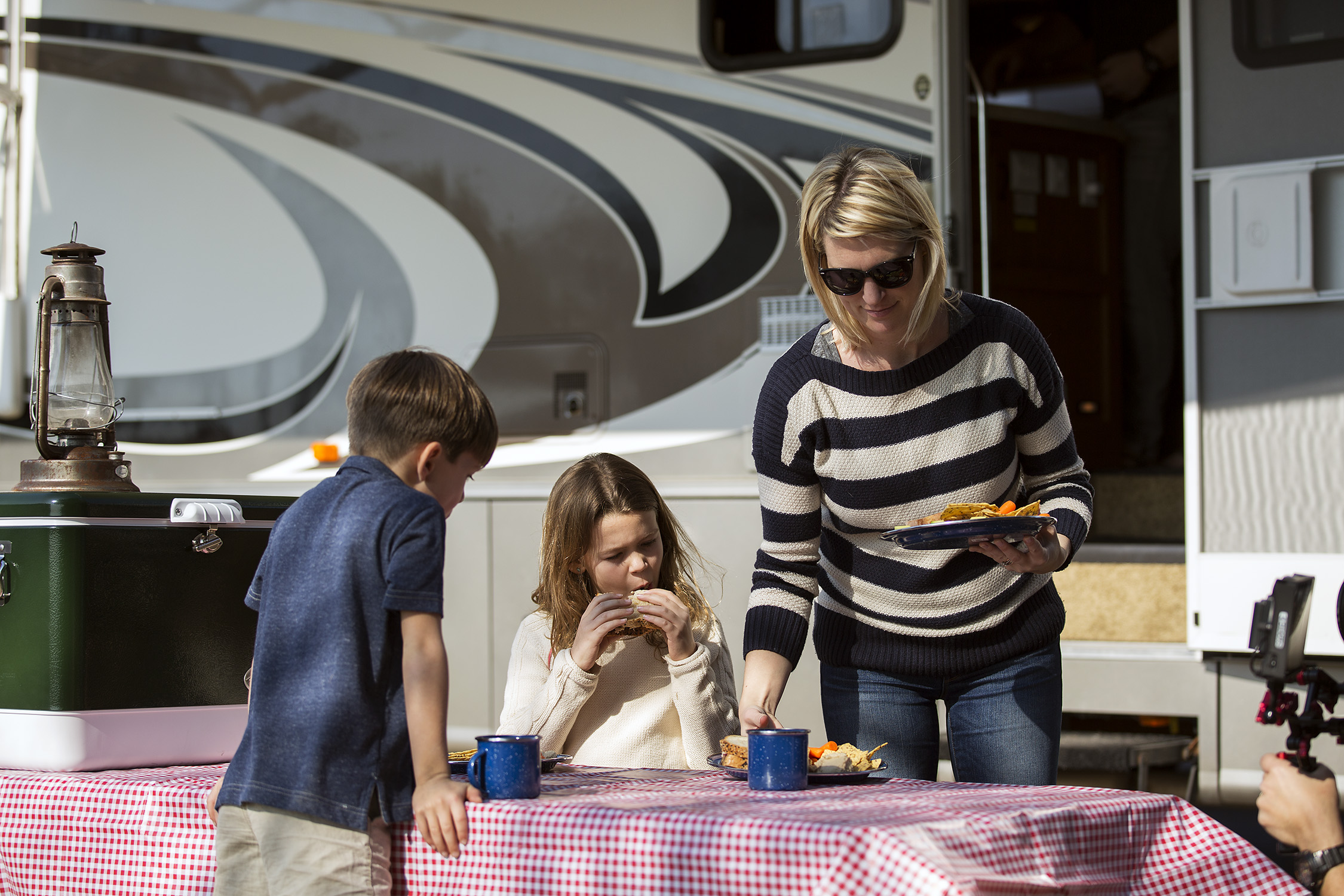If you’re a full-timer or a seasonal RVer, someone who takes extended leave, you’re already ahead of the curve. But there is still more you can do in your RV lifestyle to reduce your carbon footprint and be a responsible camper.
Temperature proof. Keep the interior of your RV better controlled by investing in window coverings that block or reflect the sun well so that the RV doesn’t go through severe temperature swings. Make sure window seals are tight and well-maintained. A fan/vent combination can help with airflow in the RV without using too much electricity.
Park in the shade. Use nature to your advantage. Choose sites that have plenty of canopy or at least receives shade part of the day. And if you don’t already have an awning, consider getting one as it will give you a place to escape from the sun and help keep your RV’s interior temperature lower.
Solar panels. Nearly 20 percent of RVers already utilize this technology to power their systems. The technology, portability, and cost are all constantly changing, and there are many on the market to choose from based on those three key areas. Solar energy reduces your dependence on gas or electricity, making it more eco-friendly. Get on board!
Water use. RVs just by their construction use less water than a standard home. Shower heads, for instance, use up to 70 percent less water. Still, there are things you can do to reduce your water usage. One thing is to wait longer between laundry cycles. Another suggestion is to scrape your dishes before hand-washing them, or wait until there is a full load in the dishwasher to clean dishes and silverware; both of these tricks maximize your efficiency and reduces the use of water.
All about materials. Use second-hand items or materials; everything doesn’t have to be brand new. Then, something gets a second life. Also, consider the materials you use to make changes to the interior design of your RV. Choose materials that can be recycled and recycle often. Minimize the use of disposable dishes, cups, and utensils to reduce trash, unless they are identified as being recyclable.
Buy direct. Michigan agriculture is diverse and delicious. There are farmers markets all across the state. Instead of going to your standard grocery store, try to time your grocery shopping to when the nearest farmers market is happening. This is a more environmentally friendly way of sourcing your food as the food didn’t need to get mass produced, processed, and transported to your area. It was grown right there. Not to mention the impact you’ll have on the local economy.
Well-tuned. A maintained RV is a happy RV. The same goes for your tow vehicle if you have a towable or trailer type. Well-maintained vehicles simply work more efficiently, including gas mileage, which is essential for motorized and trailered recreation vehicles.
Lights. Lights can be huge energy wasters, but fortunately, we live in the age of the LED light. Replace any bulbs with LED equivalents. They’re brighter and draw less energy. They also last longer so they don’t need to be replaced as often. For outdoor lights especially, or maybe the bathroom, set up automatic timers so that the lights are turned on only when they need to be used. Consider purchasing solar panel garden lights, too, they’re practical and festive!

